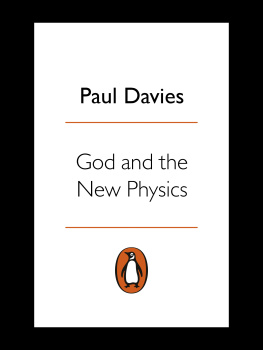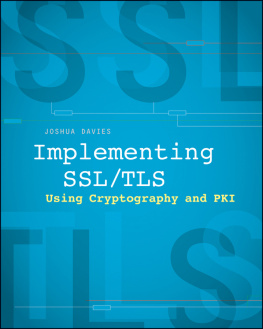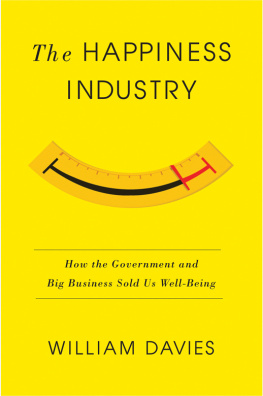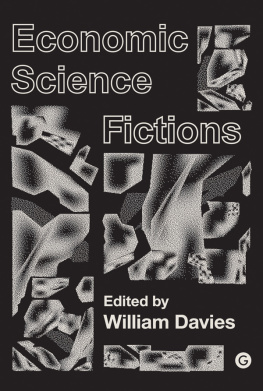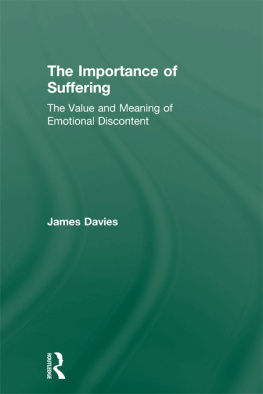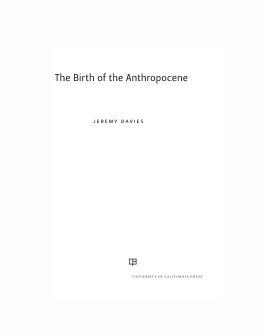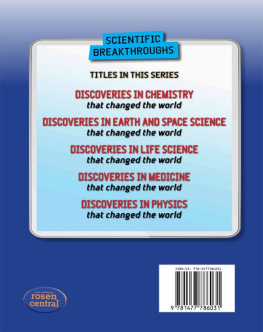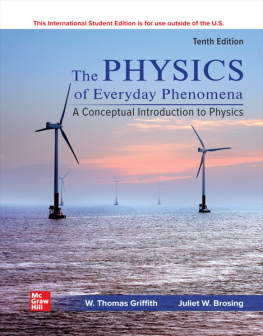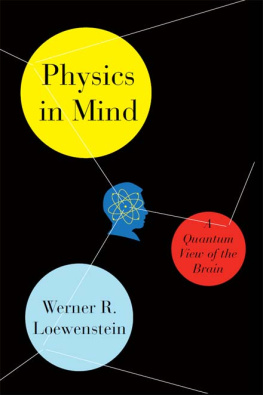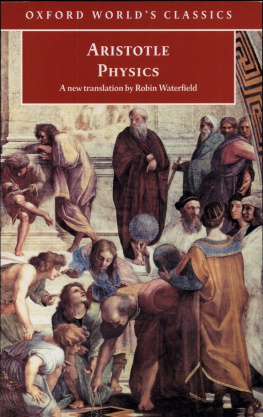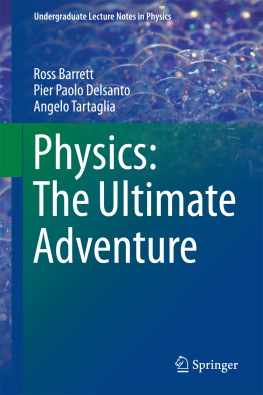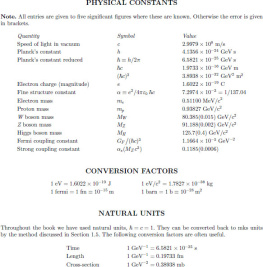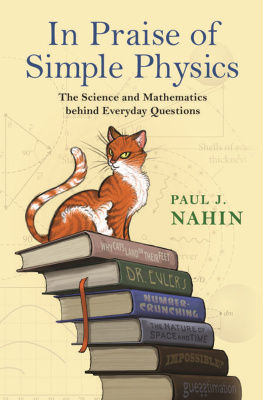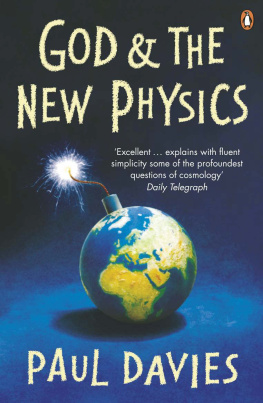Davies - God and the New Physics
Here you can read online Davies - God and the New Physics full text of the book (entire story) in english for free. Download pdf and epub, get meaning, cover and reviews about this ebook. City: London, year: 1983;2008, publisher: Penguin Books Ltd;Dent, genre: Religion. Description of the work, (preface) as well as reviews are available. Best literature library LitArk.com created for fans of good reading and offers a wide selection of genres:
Romance novel
Science fiction
Adventure
Detective
Science
History
Home and family
Prose
Art
Politics
Computer
Non-fiction
Religion
Business
Children
Humor
Choose a favorite category and find really read worthwhile books. Enjoy immersion in the world of imagination, feel the emotions of the characters or learn something new for yourself, make an fascinating discovery.
God and the New Physics: summary, description and annotation
We offer to read an annotation, description, summary or preface (depends on what the author of the book "God and the New Physics" wrote himself). If you haven't found the necessary information about the book — write in the comments, we will try to find it.
An explanation of how recent discoveries of the new physics are revolutionizing our view of the world and, in particular, throwing light on many of the questions formerly posed by religion.
Davies: author's other books
Who wrote God and the New Physics? Find out the surname, the name of the author of the book and a list of all author's works by series.
God and the New Physics — read online for free the complete book (whole text) full work
Below is the text of the book, divided by pages. System saving the place of the last page read, allows you to conveniently read the book "God and the New Physics" online for free, without having to search again every time where you left off. Put a bookmark, and you can go to the page where you finished reading at any time.
Font size:
Interval:
Bookmark:
PENGUIN BOOKS
GOD AND THE NEW PHYSICS
Paul Davies is an internationally acclaimed physicist, writer and broadcaster, now based in South Australia. He obtained a Ph.D. from the University of London and has worked at the universities of London, Cambridge, Newcastle upon Tyne and Adelaide. He is currently Professor of Natural Philosophy at the Australian Centre for Astrobiology, Macquarie University, Sydney, and he holds a Visiting Professorship at Imperial College in London. His research interests are in the field of black holes, cosmology and quantum gravity. Professor Davies is the author of some twenty books, including, in Penguin, Superforce, Other Worlds, The Edge of Infinity, The Mind of God, The Cosmic Blueprint, Are We Alone?, About Time and The Fifth Miracle.
He is the recipient of a Glaxo Science Writers' Fellowship, an Advance Australia Award and a Eureka prize for his contributions to Australian science, and in 1995 he won the prestigious Templeton Prize for his work on the deeper meaning of science. The Mind of God won the 1992 Eureka book prize and was also shortlisted for the Rhne-Poulenc Science Book Prize, as was About Time in 1996.
Religion without science is blind.
Science without religion is lame
Albert Einstein

PENGUIN BOOKS
Published by the Penguin Group
Penguin Books Ltd, 80 Strand, London, WC2R 0RL, England
Penguin Putnam Inc., 375 Hudson Street, New York, New York 10014, USA
Penguin Books Australia Ltd, 250 Camberwell Road, Camberwell, Victoria 3124, Australia
Penguin Books Canada Ltd, 10 Alcorn Avenue, Toronto, Ontario, Canada M4V 3B2
Penguin Books India (P) Ltd, 11 Community Centre, Panchsheel Park, New Delhi 110 017, India
Penguin Books (NZ) Ltd, Cnr Rosedale and Airborne Roads, Albany, Auckland, New Zealand
Penguin Books (South Africa) (Pty) Ltd, 24 Sturdee Avenue, Rosebank 2196, South Africa
Penguin Books Ltd, Registered Offices: 80 Strand, London, WC2R 0RL, England
www.penguin.com
First published by J. M. Dent & Sons Ltd 1983
Published in Pelican Books 1984
Published in Penguin Books 1990
Text and figures copyright Paul Davies, 1983
All rights reserved
ISBN: 978-0-14-196272-6


Let the conversation begin...
Follow the Penguin Twitter.com@penguinUKbooks
Keep up-to-date with all our stories YouTube.com/penguinbooks
Pin Penguin Books to your Pinterest
Like Penguin Books on Facebook.com/penguinbooks
Listen to Penguin at SoundCloud.com/penguin-books
Find out more about the author and
discover more stories like this at Penguin.co.uk
I should like to give special thanks to Dr. John Barrow of the University of Sussex, whose detailed comments have much improved the presentation of this book. The subject matter has also provoked some lively coffee-time discussions in my own department, and I have found conversation with Dr. Stephen Bedding, Mr. Kerry Hinton, Dr. J. Pfautsch, Dr. Stephen Unwin and Mr. William Walker very fruitful. I should also like to thank Mr Nicholas Denyer for drawing my attention to some factual errors in the original work.
The author and publishers wish to thank: Faber and Faber Ltd for permission to quote from The Expanding Universe by Norman Nicholson in The Pot Geranium; Harvester Press Ltd for permission to quote from Gdel, Escher, Bach by D.R. Hofstadter and The Mind's I by D.R. Hofstadter and D.C. Dennett; Methuen London Ltd for permission to quote from Summa Theologiae, Vol I: Christian Theology by St Thomas Aquinas, edited by Thomas Gilby; Richard P. Feynman to quote from his book The Character of Physical Law; Pergamon Press Ltd for permission to quote from Sir Herman Bondi, Religion is a good thing in Living Truths, edited by Ronald Duncan and Miranda Weston-Smith.
Over fifty years ago something strange happened in physical science. Bizarre and stunning new ideas about space and time, mind and matter, erupted among the scientific community. Only now are these ideas beginning to reach the general public. Concepts that have intrigued and inspired physicists themselves for two generations are at last gaining the attention of ordinary people, who never suspected that a major revolution in human thought had occurred. The new physics has come of age.
In the first quarter of this century two momentous theories were proposed: the theory of relativity and the quantum theory. From them sprang most of twentieth-century physics. But the new physics soon revealed more than simply a better model of the physical world. Physicists began to realize that their discoveries demanded a radical reformulation of the most fundamental aspects of reality. They learned to approach their subject in totally unexpected and novel ways that seemed to turn commonsense on its head and find closer accord with mysticism than materialism.
The fruits of this revolution are only now starting to be plucked by philosophers and theologians. Many ordinary people too, searching for a deeper meaning behind their lives, find their beliefs about the world very much in tune with the new physics. The physicist's outlook is even finding sympathy with psychologists and sociologists, especially those who advocate a holistic approach to their subjects.
In giving lectures and talks on modern physics I have discerned a growing feeling that fundamental physics is pointing the way to a new appreciation of man and his place in the universe. Deep questions of existence How did the universe begin and how will it end? What is matter? What is life? What is mind? are not new. What is new is that we may at last be on the verge of answering them. This astonishing prospect stems from some spectacular recent advances in physical science not only the new physics, but its close relative, the new cosmology.
For the first time, a unified description of all creation could be within our grasp. No scientific problem is more fundamental or more daunting than the puzzle of how the universe came into being. Could this have happened without any supernatural input? Quantum physics seems to provide a loophole to the age-old assumption that you can't get something for nothing. Physicists are now talking about the self-creating universe: a cosmos that erupts into existence spontaneously, much as a subnuclear particle sometimes pops out of nowhere in certain high energy processes. The question of whether the details of this theory are right or wrong is not so very important. What matters is that it is now possible to conceive of a scientific explanation for all of creation. Has modern physics abolished God altogether?
This is not a book about religion. Rather, it is about the impact of the new physics on what were formerly religious issues. In particular, I make no attempt to discuss religious experiences or questions of morality. Nor is it a science book. It is a book about science and its wider implications. Inevitably, it is necessary here and there to explain some technicalities in careful detail, but I do not claim that the scientific discussions are either systematic or complete. The reader should not be deterred by the thought that he or she is in for some punishing mathematics or strings of specialist terminology. I have tried to avoid technical jargon as much as possible.
Next pageFont size:
Interval:
Bookmark:
Similar books «God and the New Physics»
Look at similar books to God and the New Physics. We have selected literature similar in name and meaning in the hope of providing readers with more options to find new, interesting, not yet read works.
Discussion, reviews of the book God and the New Physics and just readers' own opinions. Leave your comments, write what you think about the work, its meaning or the main characters. Specify what exactly you liked and what you didn't like, and why you think so.

